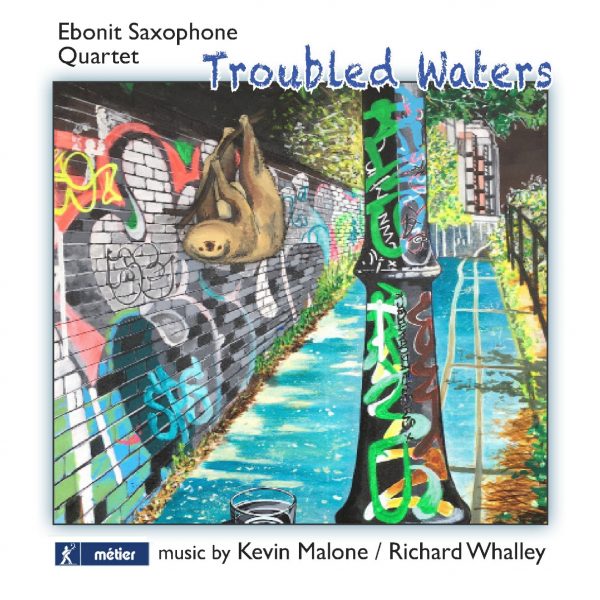The Chronicle Review Corner
These are works by two composers working at the University of Manchester, one American (Kevin Malone) and one British (Richard Whalley). The works are based on older music — spirituals, protest songs and work ballads — and the theme is protest (who says all the protest saxophonists have gone, eh)? And a classical green protest album has got to be worth giving a go.
The music is curious, ranging from super friendly and easy to more jarring and modern, some sections not working too well in as much as you’re mostly glad they’re over, and for an album about Mother Earth it’s rather cold and inorganic. But it’s an interesting listen.
Ebonit Saxophone Quartet are superb, and you forget there are only saxophones playing. “Is that a cello?” we wondered at one point, reaching for the sleeve. The Press notes say the music reflects the instability of our current world and political systems — climate change, gun control (or lack of), the deafness of our “leaders” to the real needs of the planet and its people.
Kevin Malone’s Troubled Waters is all pretty accessible. It celebrates how activists tackle resistance to change. The first, When the World’s On Fire, is jolly and jazz-infused, taking what sounded like the melody from You Are My Sunshine but is a set of variations on a folk song of the same name, later used Woody Guthrie for his iconic folk song This Land is Your Land. The Water Protectors loses the melody and offers a sound derived from the cries of protestors. Malone visited a protest in North Dakota, where the Lakota were protesting the Dakota Access Pipeline, and our own Preston New Road, Blackpool, where people protested Cuadrilla’s fracking. The sound of marching underpins the cries.
Richard Whalley’s work opens with When the World’s On Fire, which like the opening track of the same name, starts with a swirl of sax and the same folk tune. His Iapetus Suture (an ancient geological fault) is one of the more out-there sections, but moves from “breathy music” from deep below the surface to something approaching melodic. Closing piece Refugees Welcome is a response to the political upheavals in the UK and US during 2016, with Whalley disturbed by the scapegoating of immigrants and refugees by populist politicians and journalists. It’s suitably mournful and atmospheric. Certainly an album for sax fans but also for people who like their music thoughtful.
@divineartrecordingsgroup
A First Inversion Company
Registered Office:
176-178 Pontefract Road, Cudworth, Barnsley S72 8BE
+44 1226 596703
Fort Worth, TX 76110
+1.682.233.4978












